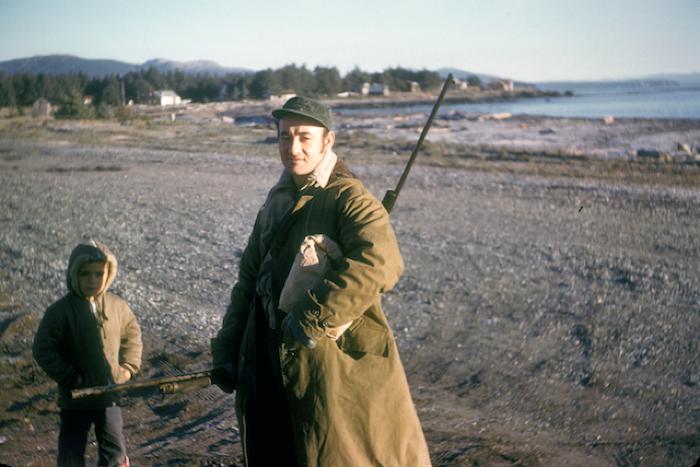Hunter — Pisurta

The Alutiiq word pisurta translates literally as “one who hunts.” Hunting has always been essential to life on Kodiak, a way to procure not only food but many of the raw materials of daily living: animal skins for clothing and boat coverings, gut for waterproof rain gear and containers, bone and antler for tools, and whiskers, claws, teeth, and hair for decoration.
Hunting takes skill, athleticism, a keen knowledge of the natural world, and in the Alutiiq world, respect. In classical Alutiiq society, children began practicing hunting skills at a young age, mimicking adults with toy boats and weapons. Both boys and girls learned to hunt by accompanying adults on hunting trips. Once a girl began menstruating, however, she could no longer participate for fear of contaminating hunting weapons.
In addition to learning how to use weaponry, where to find animals, and how animals behaved, Alutiiq children learned rules for hunting. A hunter had to show respect for the animals he pursued by dressing cleanly, keeping tools in good repair, and never bragging about successes. A hunter must store his tools away from adult women, whose menstrual blood was considered contaminating and could offend animals. A hunter had to release the souls of the animals he killed so that they could be reincarnated and continue to provide for people.
Throughout the historic era, Alutiiq men were sought for their prowess as hunters. Russian traders recognized that the Alutiiq style of sea otter hunting was far more successful than their own and conscripted Native hunters to harvest otter pelts for Asian and European markets. Since the twentieth century, Alutiiq people have worked as hunting guides, leading sportsmen on hunting trips for brown bears and introduced species like deer and elk.
